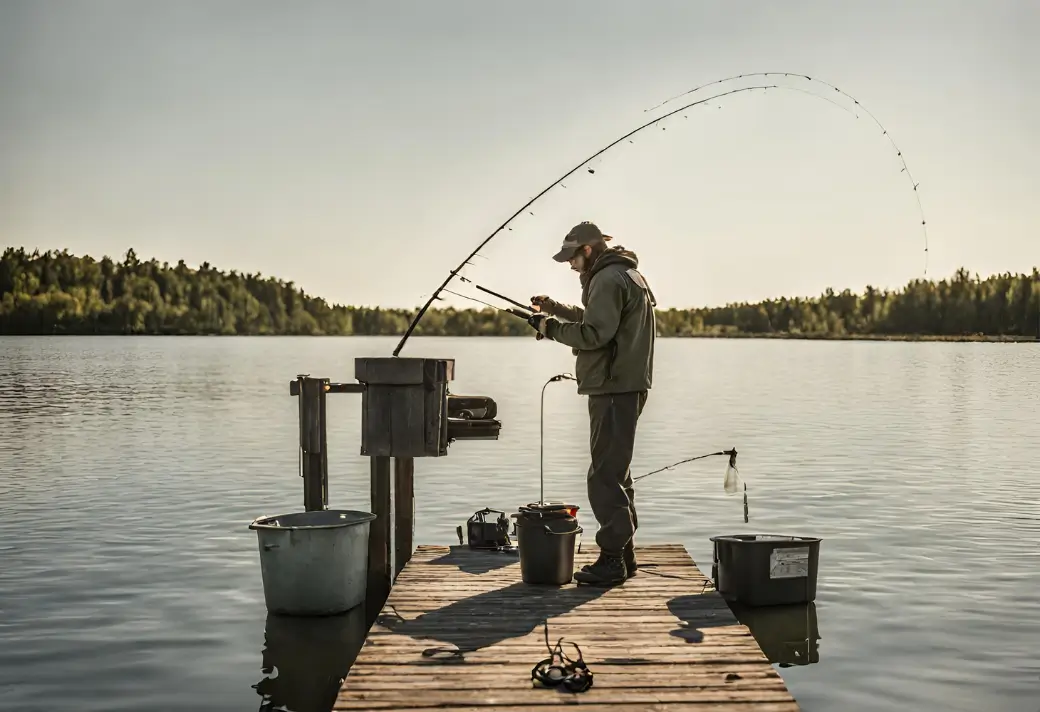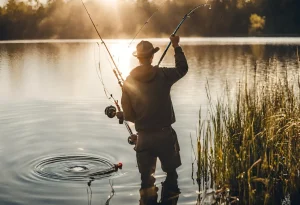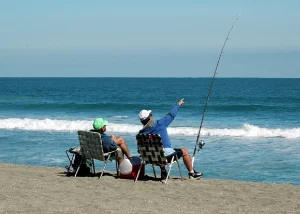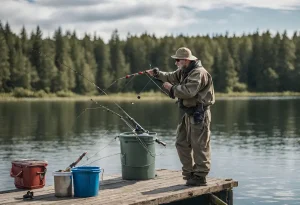Fly fishing is a beautiful and elegant sport that requires finesse and precision. Whether you are a beginner or have some experience, mastering the art of fly casting is crucial to your success on the water. In this article, I will guide you through the top mistakes that beginner fly casters often make and provide you with valuable tips to improve your technique and increase your chances of landing bigger catches.
Importance of Proper Fly Casting Technique
Proper fly casting technique is the foundation of successful fly fishing. It allows you to present your fly to the fish in a natural and enticing manner, increasing your chances of a bite. Without good technique, your fly may end up in a tangled mess, scaring away any potential fish. So, let’s dive into the most common mistakes made by beginner fly casters and how to avoid them.
Common Mistakes Made by Beginner Fly Casters
Mistake #1: Incorrect Grip and Hand Placement
One of the most common mistakes beginners make is holding the fly rod incorrectly. A proper grip is essential for casting accuracy and control. The correct grip involves holding the rod with a relaxed hand, with your thumb on top of the grip and your fingers gently grasping the handle. Avoid gripping the rod too tightly, as it can limit your ability to execute a smooth and fluid cast.
Mistake #2: Overpowering the Cast
Another mistake beginners often make is overpowering the cast. Using excessive force can result in a jerky and erratic cast, making it difficult to place your fly accurately. Instead, focus on using a smooth and controlled motion, allowing the rod to do the work for you. Remember, it’s the motion and timing, not brute strength, that will propel your fly towards your target.
Mistake #3: Poor Timing and Rhythm
Timing and rhythm are crucial elements of a successful fly cast. Many beginners struggle with this aspect, resulting in awkward and ineffective casts. To improve your timing, practice the proper sequence of movements: loading the rod, accelerating smoothly, and stopping abruptly at the end of the cast. Developing a consistent rhythm will help you achieve a smooth and efficient cast every time.
Mistake #4: Using the Wrong Fly Line or Leader
Using the wrong fly line or leader can significantly impact your casting distance and accuracy. It’s essential to match your fly line and leader weight to your fly rod. A mismatched setup can make it difficult to load the rod properly and achieve the desired casting distance. Consult with a knowledgeable fly shop or experienced angler to ensure you have the right equipment for your fishing conditions.
Mistake #5: Neglecting the Backcast
The backcast is often overlooked by beginners, but it plays a crucial role in fly casting. Neglecting the backcast can result in a lack of line control and accuracy. Remember to give equal attention to both the forward cast and the backcast. Practice your timing and motion for both casts to develop a balanced and efficient casting stroke.
Mistake #6: Lack of Practice and Patience
Fly casting is a skill that requires practice and patience to master. Many beginners expect immediate results and become discouraged when they don’t achieve their desired casting distance or accuracy right away. Remember that fly fishing is a journey, and every angler, regardless of experience, can benefit from regular practice and a patient approach.
Tips for Improving Fly Casting Technique
Now that you are aware of the common mistakes made by beginner fly casters, let’s delve into some tips for improving your fly casting technique:
- Practice regularly: Dedicate time to practice your casting technique on and off the water. Focus on the fundamentals and gradually increase the difficulty of your casting exercises as you progress.
- Seek guidance: Consider taking a fly casting lesson from a qualified instructor. They can provide valuable feedback and help you correct any bad habits before they become ingrained.
- Visualize your cast: Before making a cast, visualize the line unrolling smoothly and your fly landing softly on the water. This mental preparation can help you execute a more accurate and controlled cast.
- Experiment with different casting styles: Explore different casting styles, such as the overhead cast, roll cast, and sidearm cast. Each style has its advantages and can be useful in different fishing scenarios.
- Study the water: Pay attention to the water conditions and adjust your casting technique accordingly. Factors such as wind, current, and obstacles can affect your casting performance.
- Record and analyze your casts: Use your smartphone or a video camera to record your casting sessions. Review the footage to identify any areas for improvement and make necessary adjustments.
Resources for Further Learning and Improvement
To further enhance your fly casting skills, here are some recommended resources:
- Books: “The Orvis Fly-Fishing Guide” by Tom Rosenbauer and “Fly Casting Fundamentals” by Lefty Kreh are excellent books for beginners looking to improve their casting technique.
- Video tutorials: Online platforms such as YouTube offer a plethora of fly casting tutorials from expert anglers. Take advantage of these free resources to learn new techniques and gain valuable insights.
- Fly casting clinics and workshops: Many fly shops and fishing clubs offer casting clinics and workshops. These hands-on learning experiences can provide personalized instruction and feedback to help you refine your technique.
Conclusion: Mastering Fly Casting for Better Technique and Bigger Catches
Fly fishing is a rewarding and challenging pursuit that requires proper technique and skillful casting. By avoiding the common mistakes made by beginner fly casters and implementing the tips provided in this article, you can improve your fly casting technique and increase your chances of landing bigger catches. Remember, practice and patience are key, so get out there and enjoy the art of fly fishing!




